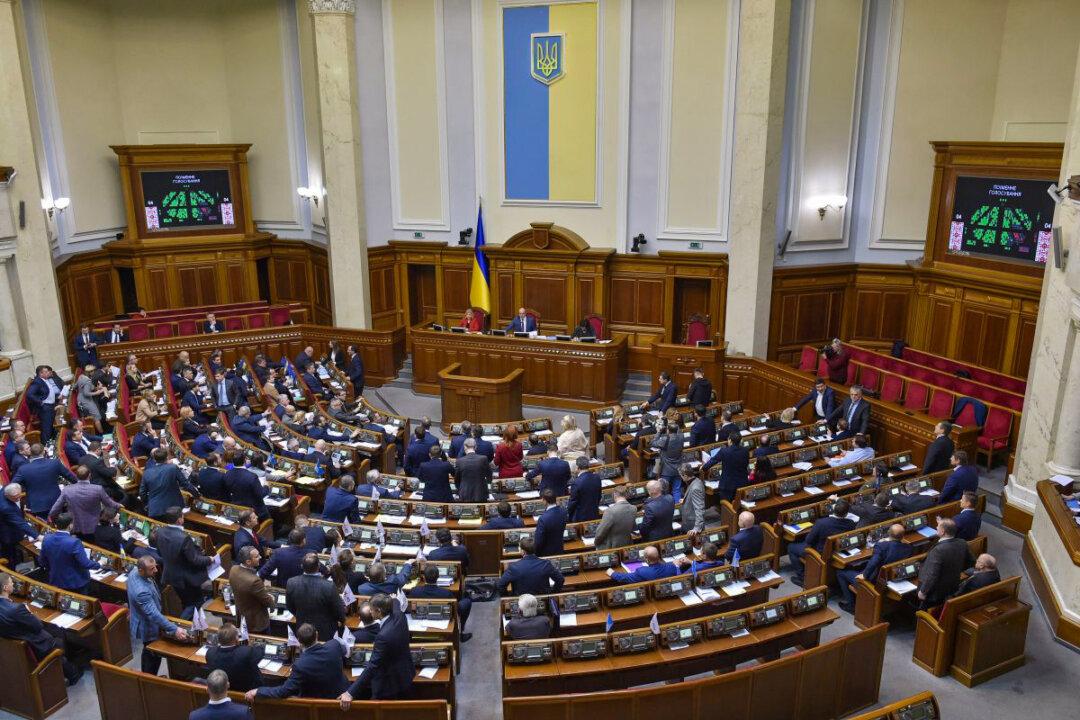Russian music is set to be banned from being broadcast in Ukrainian media and on public transport after the country’s Parliament voted Sunday in favor of a new bill aimed at reducing Russia’s influence.
Members of Ukraine’s Parliament, also known as the Verkhovna Rada of Ukraine, also voted on Sunday in favor of a bill that would place severe restrictions on Russian books.




